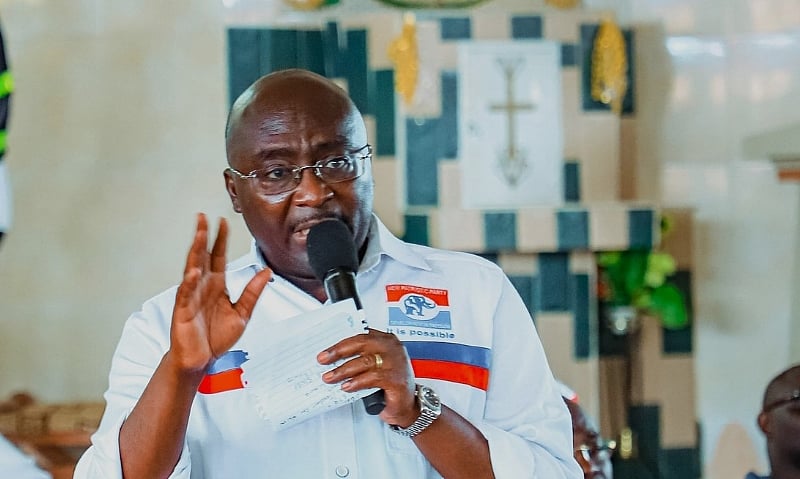In a recent campaign event, Vice President Dr. Mahamudu Bawumia, who is also the New Patriotic Party (NPP) flagbearer, outlined his vision for a more reliable and efficient energy sector in Ghana, promising significant changes should he be elected president in the upcoming December 7 general elections. His key focus is on the need for affordable energy, which he argues is essential for the growth of local industries and manufacturing companies. Dr. Bawumia highlighted that the current electricity consumption in Ghana is approximately 4,000 megawatts, and he aims to boost this capacity by 2,000 megawatts. This increase, according to Bawumia, could lead to a reduction in electricity costs by about 50%, thereby alleviating financial pressures on local businesses and creating a conducive environment for economic growth.
Furthermore, Dr. Bawumia committed to prioritizing solar energy initiatives, given its potential for cost savings and environmental sustainability. He emphasized that a move towards a solar-centric energy policy could set the stage for a transformation in how energy is produced and consumed in Ghana, ultimately benefiting both consumers and industries. During his speech at the launch of the 25th anniversary of Osagyefo Oseadeyo Dr Agyemang Badu II’s enstoolment in Dormaa-Ahenkro, he reiterated that an affordable and reliable energy mix would act as a catalyst for rapid socio-economic development, thereby improving the overall quality of life for Ghanaians.
In addition to energy reforms, Dr. Bawumia proposed a ‘Buying Ghana First’ policy aimed at fostering local manufacturing and reducing reliance on imported goods. He explained that this policy would be enshrined in law to ensure all government agencies prioritize local products for procurement. This initiative aims not only to support local industries but also to enhance employment opportunities throughout the country. By prioritizing domestic goods and services, Dr. Bawumia hopes to boost local production capabilities and foster a culture of self-reliance, which he believes is critical for sustainable economic growth.
The Vice President also emphasized the importance of modernizing agriculture in Ghana, which he termed the backbone of the economy. Acknowledging that around 60 percent of the adult population is engaged in agriculture, he advocated for the establishment of District Agriculture Mechanization Centres. These centers would provide farmers access to modern machinery and tools necessary for enhancing agricultural productivity. Dr. Bawumia’s commitment to agriculture reflects a broader vision of ensuring food security while increasing the sector’s contribution to Ghana’s GDP.
Additionally, Dr. Bawumia acknowledged the need for inclusive employment practices, specifically addressing the situation of Persons with Disabilities (PWDs). He reaffirmed his commitment to instituting quotas to ensure fair representation of PWDs in the formal employment sector. This progressive stance is particularly significant in a country where marginalization is still a challenge. By advocating for inclusivity, Dr. Bawumia aims to create a more equitable economic landscape that addresses the needs of all citizens.
In response to concerns raised by local leaders regarding infrastructure, particularly the poor state of roads in the Dormaa area, Dr. Bawumia pledged to rehabilitate significant routes that connect the towns and improve accessibility. He emphasized the urgent need for the government to intervene in the deteriorating road networks and responded positively to calls for action against illegal mining activities, committing to engage traditional authorities in addressing these pressing issues. This multifaceted promise showcases Dr. Bawumia’s focus on proactive governance, infrastructure development, and community engagement as essential components of his campaign platform leading into the elections.














